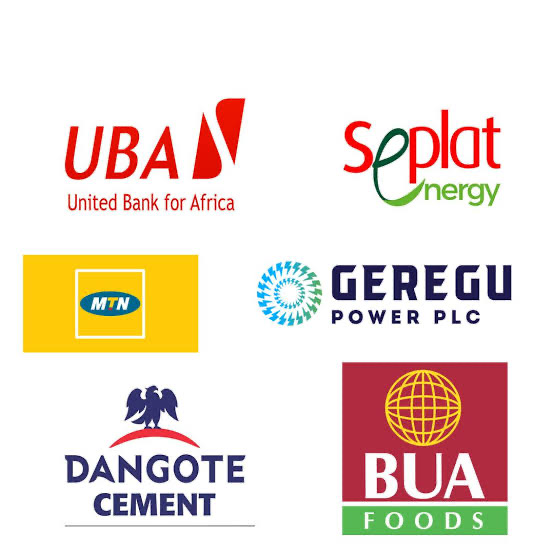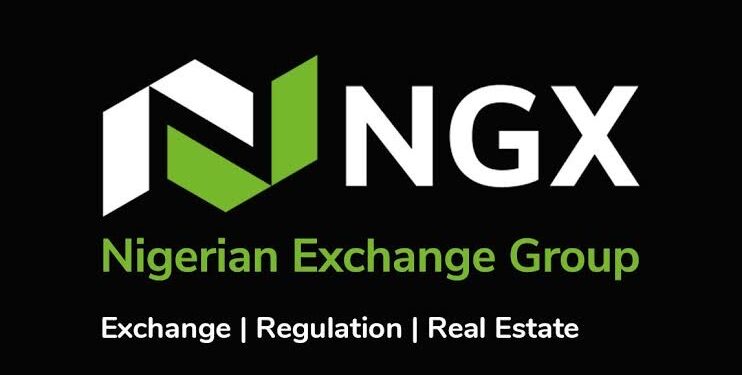As Nigeria’s economic landscape continues to change, the debt profiles of some of the country’s largest and best-capitalized companies have risen to high levels.
As of the end of the first half of 2024, the eight companies under the SWOOT umbrella (Stocks Worth Over One Trillion Naira) have a combined debt of 4.6 trillion naira. This represents a 15% increase in just six months compared to their debt levels at the end of 2023.
The companies include Dangote Cement, BUA Foods, MTN Nigeria, BUA Cement, Transcorp Power, Transcorp Hotel, Geregu and Seplat Energy.
As of the close of trading on Wednesday, August 21, 2024, these companies have a market capitalization of over 1 trillion naira. It is important to note that Airtel Africa, GTCO, and Zenith Bank also have market capitalizations of over 1 trillion naira but are not included in this report. GTCO and Zenith Bank have yet to report their Q2 2024 financial results, and Airtel Africa follows a different fiscal year calendar.
The combined market capitalization of these companies has fallen from 47.6 trillion naira in Q1 2024 to 43.14 trillion naira as of the close of trading on August 21, 2024.

Regardless, the year-to-date (YTD) average gains for these stocks are still robust at 44%.
An important point to note is that despite their seemingly heavy debt profiles, the companies’ average interest coverage ratios are still healthy at 6.8x, indicating profit margins are expanding by 0.71%. This suggests that the companies are making enough profits to cover their interest expenses several times over. However, the impact on profitability and returns is important for investors.
Dangote Cement saw its total debt increase by 57% to NGN1.6 trillion in just six months. This increase in borrowing led to interest expenses being the highest among SWOOT companies, reaching NGN130 billion. Its debt ratio rose to 73.5%, while its interest coverage ratio fell to 4.24 times.
Despite these hurdles, Dangote Cement was able to generate robust earnings per share (EPS) of NGN11.26, with profit after tax reaching NGN189.9 billion. However, the company’s net profit margin fell 43% year-on-year to 11%, revealing its heavy debt burden.
Return on equity (ROE), a key indicator of profitability, also took a hit, falling to 9%. This decline in profitability despite rising debt suggests that the increase in debt has not materially increased earnings.
Meanwhile, MTN Nigeria reduced its debt by 19.7% to 945 billion naira, but continued to struggle due to a significant increase in interest expenses, which rose to 183 billion naira. This led to a significant decline in its interest coverage ratio to 1.7 times. In addition, MTN Nigeria suffered a significant foreign exchange loss of NGN887.7 billion, resulting in a pre-tax loss of NGN751 billion. The combined impact of high-interest expense and foreign exchange loss has severely impacted MTN’s profitability.
Seplat Energy’s debt also increased significantly, increasing by 60% to NGN1.1 trillion. This resulted in a 199% increase in interest expense, but under lift and foreign exchange gains helped the company maintain a strong operating performance and a high interest coverage ratio of 5.7 times.
However, Seplat’s net profit was significantly reduced by deferred tax liabilities, resulting in a net profit margin of 12%, down 22% year-on-year, and a lower ROE of 2.6%. While the low return on equity may suggest that the increase in debt has not translated into a proportionate increase in profitability, it is important to note that this is primarily due to the impact of deferred tax liabilities, rather than due to inefficiencies in the company’s operations or the company’s inefficient use of borrowed capital.

Seplat’s core business remains strong and the low return on equity can be attributed to external tax factors rather than to inefficiencies in the company’s debt strategy.
BUA Cement’s debt profile increased by 32% to NGN 553.48 billion, with its debt-to-GDP ratio increasing to 132%. Although the company managed to maintain an interest coverage ratio of 7.5 times, profitability was under pressure, with operating profits declining by 6% and return on equity declining by 8.2%.
The increasing debt level raises concerns about the company’s long-term financial stability, especially in light of the declining profit margins and rising leverage ratios.
Meanwhile, BUA Foods was able to reduce its debt by 44% to NGN364 billion, improving its liquidity and financial stability. However, the company continued to face challenges as a significant foreign exchange loss of N54 billion hit its profit margins.
Despite a 25% increase in pre-tax profits, profit margins fell by 40% and return on equity fell by 8% to 33.3%. This suggests that while deleveraging has strengthened its financial stability, it has not fully protected the company from rising costs and currency fluctuations.
Despite these pressures, BUA Foods maintained a robust interest coverage ratio of 10.32 times. This means that BUA Foods is earning more than 10 times the amount it needs to cover its interest payments, suggesting that the company is in a strong position to manage its debt even in the face of financial pressures such as rising cost-profit margins and economic challenges.
Geregu Energy saw its debt increase to NGN 58 billion, with interest expenses growing by 21%.
However, the company’s strong performance has helped it maintain a healthy interest coverage ratio of 6.26 times, and its pre-tax profits increased by 145% year-on-year. This resulted in improved profit margins at 37% and a robust return on equity at 44%.
Geregu’s ability to effectively utilize debt without compromising profitability appears to be reflected in its share price, which has risen 150% since the start of the year.
Transcorp Hotels’ debt increased slightly in the six months to NGN20.675 billion, up 0.10%. With interest expense of N1.98 billion, the company’s interest coverage ratio is robust at 6.12 times, easily covering interest payments. The low equity ratio of 1.86 times and leverage ratios (15% debt to assets and 28% debt to equity) reflect a conservative approach to debt.
The company reported a profit after tax of NGN6.6 billion and a high net profit margin of 22%. However, the current ratio of 0.77 indicates potential liquidity issues.
Despite these challenges, Transcorp Hotels’ share price has risen 42.5% since the beginning of the year, reflecting positive investor sentiment.
Transcorp Power’s debt increased 28% to NGN47.6 billion, but the company maintained a high-interest coverage ratio of 12.85 times.
The company’s return on equity was an impressive 39%, suggesting that it is effectively managing its increased debt to improve profitability and revenue. Transcorp Power’s share price has also benefited, rising 41% year-to-date, reflecting investors’ strong confidence in the company’s financial strategy.
While rising overall debt levels for SWOOT companies create challenges such as higher interest expenses and pressure on profitability, many of these companies have managed to maintain or even improve their market positions through effective debt management and operational performance.
However, the longer-term impact of these rising debt levels on profitability and earnings remains a key area to monitor.
































